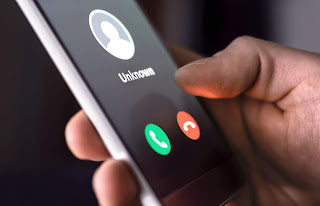Tuesday, March 9, 2021 In order to stay far away from vaccine scams, keep in mind the information below and stay safe as you navigate this process.
Tuesday, January 26, 2021 Tuesday, August 18, 2020 With states continuing to work toward reopening, as usual, scammers aren’t far behind. Keep your finances safe and watch out for these trending scams as the country continues to reopen: Account Takeovers Shorter hours and percentage-capacity rules mean many consumers are still shopping remotely. This leads to an increase in online retail scams like account takeovers, where scammers hack a company’s database to break into a customer’s account. Using the customer’s remembered payment information, the scammer goes on to place large orders to their own address — all on the client’s dime. Tuesday, May 12, 2020 Tuesday, March 17, 2020 About UsCareersBoard of DirectorsCommunity ImpactADA/ Web Accessibility CloseEnuff™ CheckingSavings AccountsMoney MarketsCertificates of DepositIRAsGrow Your Change Auto LoansBoat & RV LoansPersonal LoansBusiness LoansHome Equity LoansStudent LoansSkip-A-Pay PurchaseRefinanceFirst-Time HomebuyersMortgage Specialists Credit CardsCard Info & DisclosuresFraud Protection Youth ServicesStudent-Run CUGreenlightYoung Adult ServicesScholarshipsCloseEnuff™ Student Checking Community ImpactRelentless Care FoundationChoose The BearBlog Archive
 The coronavirus (COVID-19) pandemic has been raging on American shores for several months, but scammers are still finding new ways to exploit the panic, fear and uncertainty surrounding the virus to con people out of their money. The latest in a string of coronavirus scams involves a simple text message with criminal intent.
The coronavirus (COVID-19) pandemic has been raging on American shores for several months, but scammers are still finding new ways to exploit the panic, fear and uncertainty surrounding the virus to con people out of their money. The latest in a string of coronavirus scams involves a simple text message with criminal intent.
The World Health Organization (WHO) has published on its website a warning against email scams connected to the coronavirus. The agency claims it has received reports from around the world about phishing attempts mentioning coronavirus on an almost daily basis.
P.O. Box 8050
Plymouth, Michigan 48170-8050
(877) 937-2328
2021(61)
December(5)
November(6)
October(5)
September(4)
August(5)
July(3)
June(6)
May(5)
April(5)
March(6)
February(6)
2020(61)
December(6)
All You Need to Know About Going Cashless5 Ways to Trim Your Fixed ExpensesBeware of Debt-Collection ScamsSchool Spotlight: Liberty Middle School and Financial Online Resources for Middle School Students3 Ways to Make Your Holidays Bright (and Safe!)9th Annual Warming Hearts & Homes: You Click, We Donate!
November(5)
October(5)
September(5)
August(4)
July(4)
June(6)
The Complete Guide to Prioritizing Bills During a Financial CrunchAll You Need to Know About Closing CostsSchool Spotlight: New School High Learns Real-Life Skills with the Student-Run Credit Union ProgramCreative Dine-In Cooking: Spaghetti PizzaWhy Is There Still a Shortage on Some Goods?Summer of Sharing 2020: 10 Years of Sharing
May(5)
April(5)
March(6)
February(5)
2019(62)
December(6)
Using 20/20 Vision in Your Financial New Year's ResolutionsStay Safe From These Airbnb Scams This WinterHow to Prepare Your Home for WinterSchool Spotlight: Bentley Elementary Students Benefit with the Student-Run Credit Union and Junior Achievement Programs6 Ways to Keep Your Finances Intact This Holiday SeasonWarming Hearts & Homes is Back. You Click. We Donate!
November(6)
October(6)
Save Money by Dining In | Butternut Squash and Chicken Chili5 Apps to Download Before the Holiday Shopping SeasonSchool Spotlight: Ridge Wood Elementary Teachers Engage Students in Financial EducationInternational Credit Union Day is October 17th!Making Banking Easier with an Updated Mobile App!Ways to Save on Food Costs in College
September(4)
August(4)
July(5)
June(5)
May(5)
April(6)
March(5)
February(5)
2018(63)
December(6)
4 Financial Resolutions for 2019 6 Financial Mistakes People Make in their 20's and How to Fix ThemSchool Spotlight: Local High School Students Learn About CreditMaking the Holidays Count When Home from College7 Naughty Scams to Watch Out for During the HolidaysWarming Hearts & Homes is Back. You Click. We Donate!
November(5)
October(6)
September(4)
August(5)
July(5)
June(5)
May(6)
April(5)
March(5)
February(5)
Beware Coronavirus Vaccine Scams
Believe it or not, there is a light at the end of the socially-distanced tunnel. After months of trials, the FDA has approved three vaccines for the coronavirus. While it may not be a quick process—due to the rules and regulations about who will be getting the vaccine first—scammers may have you thinking otherwise.
Beware Heartbreak with Romance Scams
With COVID-19 forcing more singles to connect online, America’s most expensive scam is on the rise. Romance scams are all over the internet and can be difficult to spot. Here’s what you need to know about these scams to keep yourself from heartbreak.
Stay 6’ Away from Scammers as the Country Reopens
COVID-19 Texting Scam
Beware of Coronavirus Scams
Scammers are notorious for capitalizing on fear, and the coronavirus outbreak is no exception. They have already set up fake websites, bogus funding collections and more in an effort to trick the fearful and unsuspecting out of their money.
About Community Financial
Checking & Savings
Business
Investments
Loans
Mortgage Services
Credit Cards
Student Services
eServices
Community
Member Services
Community Financial Credit Union
Visit One of Our 14 Convenient Locations








